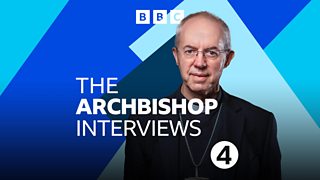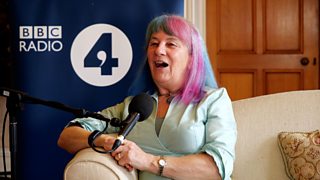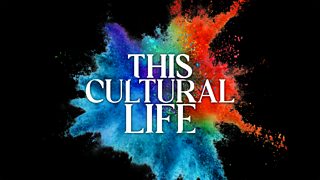11 things we learned when the Archbishop of Canterbury met Tony Blair
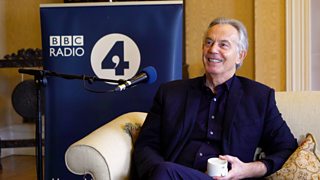
In a new series for Radio 4 the Archbishop of Canterbury, Justin Welby, has deep conversations with people, who have made a significant contribution to public life, about what they believe. How have they navigated their inner life alongside their public profile? What has been their moral “touchstone” through the good times and the bad? How do they engage with faith and spirituality?
Justin meets former UK Prime Minister Sir Tony Blair who, while not wearing religion on his sleeve while in office, is open about the fact that his faith was foundational to the values and principles that underpinned a remarkable political career.
They discuss the beliefs and desires that lay behind his decisions – from domestic policy to invading Iraq – and the personal resources required to deal with their consequences.
1. Tony’s upbringing, beliefs and values informed how he ran the country
Tony Blair the politician and Tony Blair the person of faith are “integrated”, admits the former Prime Minister, because how you lead “comes from what you believe”.
He says people often think of politicians as “simply blowing with the wind” or unsure of what they want to achieve, but “there’s no point in being in politics unless you have a sense of conviction.” For him it was a vocation: “I had a clear concept of where I thought the country should go and that came from my own upbringing and beliefs.” The values of how you created a fair society, a deep sense of compassion and commitment to the world outside your own boundaries “were the values that motivated me,” he says.
2. Both men found their way to faith at university
Both the Archbishop and former Prime Minister found their faith during their time at University.
Tony grew up with a father who was a passionate atheist and a mother who wasn’t especially religious, but at Oxford he came into contact with a charismatic religious figure called Peter Thomson who showed him it was possible “to be normal in that human sense but still retain a deep sense of conviction.” The student realised there was an alternative to joining what he describes as the “dreaded God Squad”!
“I found a way of reconciling a very non-pious and in some ways quite iconoclastic view of religion, with faith,” he says.
3. Tony feels like he has more in common with people of other faiths than no faith at all
“I became increasingly interested in religious faith and still am,” says Tony. He’s even more interested in exploring the meaning of other faiths today than when he was younger. And he believes being a person of faith can help him connect with others of faith – regardless of their religion: “I find that I will often have more in common with someone, for example, who is of the Muslim faith, because they’re also a person of faith, than I will with someone who just regards it as absurd hocus pocus.”
I found a way of reconciling a very non-pious and in some ways quite iconoclastic view of religion, with faith.
4. When negotiating the Good Friday Agreement, Tony spoke to Ian Paisley about religion more than politics
Tony’s mother’s family was from Donegal, and fiercely Protestant. During the 1960s his Grandmother used to speak to him about this “great man” Ian Paisley [Democractic Unionist Party leader in Northern Ireland, and former First Minister] who was going to save the protestant people. “He was very much a figure of my youth,” says the former PM. Then years later, sat round the negotiating table with the same man, he found faith provided a common ground.
“He and I did often talk more about religion than we did about politics,” says Tony. “I was just interested in how he reconciled what was a genuine faith with what I often regarded as bitterly sectarian politics. And through that we were able to relate to each other better.” Tony’s conversion to Catholicism could have been a problem, he says, but in fact he found it provided a connection. “It wouldn’t be great if I’d started as one,” he admits, laughing.
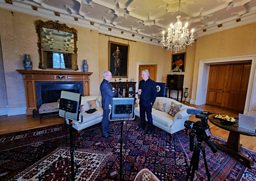
5. Tony believes that light triumphs over dark
Justin asks Tony whether, within his own belief, he holds to the sense that good will triumph. “I do,” he replies. “Ultimately I’m an optimist and think that it will. And of course, often the darkness overwhelms the light but if you look at the broad arc of human history, we’ve made progress.” If you take the continent of Africa, life expectancy has gone up, the number of people dying from killer diseases has gone down, and that’s happened as a result of human agency, he says. “It hasn’t happened accidentally.”
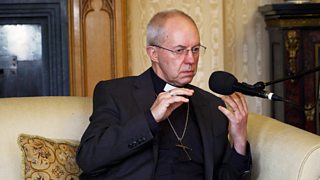
He says it can sound like a cliché to talk about a “community of nations” but he believes in today’s world there is such a thing, whether people like it or not. The recent isolationist nature of politics won’t last, he argues. Take the climate change question: “There is no answer to it other than people working together.”
6. Tony thinks Saddam Hussein “was evil”
“I think it’s important to have a clear sense of good and evil,” he says, “in a sense that there are people who want to contribute to the good in the world and there are people who frankly don’t and are prepared to use any means to further their own objectives.”
He believes the Iraqi leader Saddam Hussein “was evil. If you define it as doing something genuinely wicked in the sense that you’re deliberately causing harm to people for no good reason, but for bad reason, for the reason just holding on to power.” He says many of the things the dictator did to his own people, including the use of chemical weapons, demonstrate this.
Saddam was ousted as a result of the 2003 war in Iraq, under Blair’s leadership. “It’s not the job of a political leader to go round the world ‘rooting out evil’”, he says, “but when you’re faced with the situation in which you believe that the interests of your country demand that you stop something bad happening, it’s important that you stand for that and that you take the action necessary to stop it.”
7. They both want people around them that challenge and criticise their ideas
“I’m conscious that with power or influence comes something within yourself that is bad, as well as the ability to do some things that are good,” says the Archbishop. For that reason, he needs people around him “who challenge; who criticise.”
Tony agrees: “It is important to be surrounded by people who are prepared to tell you they disagree with you, and I was.”
“No one is ever as good as they might think they are,” says the former Prime Minister. “After leaving office and as I’ve grown older, I’m constantly amazed by how much I don’t know.”
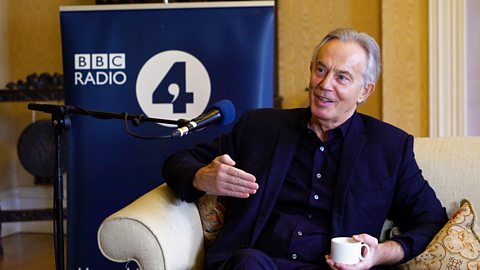
Standing up against evil
Justin Welby and Tony Blair debate the fight against evil, in Iraq and Ukraine.
8. When making big decisions, Tony did what he felt was “right”
Tony admits that people would often say he made the wrong decisions – over Iraq, Afghanistan and other things – but “you’ve got to do what you think is right.” Whether you are right or not’s another matter, he says, but “in those really big decisions, you don’t know what all the different component elements are, and you’ve got to follow in the end your own instinct.
"Post 9/11, I decided we had to be with America - the whole issue to do with the use of chemical, biological weapons, the development of nuclear weapons - we had take a strong, strong stand on it. Now I may have been wrong, but taking those decisions, I had to do what I thought was the right thing.
“I think that’s a very strong obligation on a Prime Minister in these situations,” he states. “In the end, you just don’t know how things are going to unfold, but it’s your job to take the decision.”
9. Tony was a “different type of politician” at the end of his tenure to when he started
“When I came to power in 1997, I was a different type of politician to the politician that left in 2007,” says the former PM. “In 1997 I was basically anxious to please all of the people all of the time.” Because the Labour Party had been in opposition for 18 years, he’d won a comprehensive election victory and had a big mandate, it felt important to keep people on side.
“And then I realised as I went on, you can’t please all of the people all the time. The moment you decide, you divide.” It’s also not your job, he insists. “Your obligation, your duty, is to do what you think is right, because anything else means that you’re not really a leader in the proper sense.”
10. Faith and temperament helped the former PM cope with being disliked
“Temperament is a very important thing in any position of leadership,” says Tony. “Your temperament’s got to be able to withstand the criticism and also know what it means and what it doesn’t mean.” If you’re in a position of political leadership there will be people who absolutely hate you, and you can become fixated on the “unreasonableness” of it all, he admits. But, on the other hand, he would recognise that getting to become prime minister of the country is a privilege. “Whenever I’m talking to young people today, I say the most important thing is to wake up in the morning with a sense of purpose and go to sleep at night counting your blessings,” says the former leader.
The politicians you really shouldn’t trust are the people that get up and tell you the simple slogans.
Faith helps too. He says, for him, the most important thing about the Christian belief is acknowledging something greater and more important than yourself. “However important or well-known you are, or supposed to be, that inner architecture of humility and recognition of your own insignificance is important.”
11. Tony argues that politics is about complexity, not “simple slogans”
“I think the problem with politics is that in a world that is in fact very complex, people search for simplicity,” Tony states. He believes it’s important to get people to recognise that democracy works best when you’re entrusting the government with the decisions of the day. You can still criticise and evaluate those decisions, he suggests, but understand that the politician in question will have studied the issue and thought about it deeply.
“Respect the fact of that complexity rather than reduce it to something that’s a simple slogan,” he says. “The politicians you really shouldn’t trust are the people that get up and tell you the simple slogans.”
-
![]()
The Archbishop Interviews... Tony Blair
This week's guest is the former UK Prime Minister Sir Tony Blair. “We don't do God” is one of the most quoted lines from his 10-year premiership. While famously not wearing religion on his sleeve as a politician, he is open about how his faith has been foundational to the principles that underpinned his politics.

More deep conversations on Radio 4
-
![]()
The Archbishop Interviews... Elif Shafak
Justin Welby and the novelist Elif Shafak discuss forgiveness, depression and the wisdom of grandmothers.
-
![]()
The Archbishop interviews... Dr Susan Blackmore
Coming from very different perspectives, Justin and psychologist Susan Blackmore find some common ground on consciousness.
-
![]()
The Listening Project
Bringing Britain together, one conversation at a time.
-
![]()
This Cultural Life
In-depth conversations with some of the world's leading artists and creatives.
